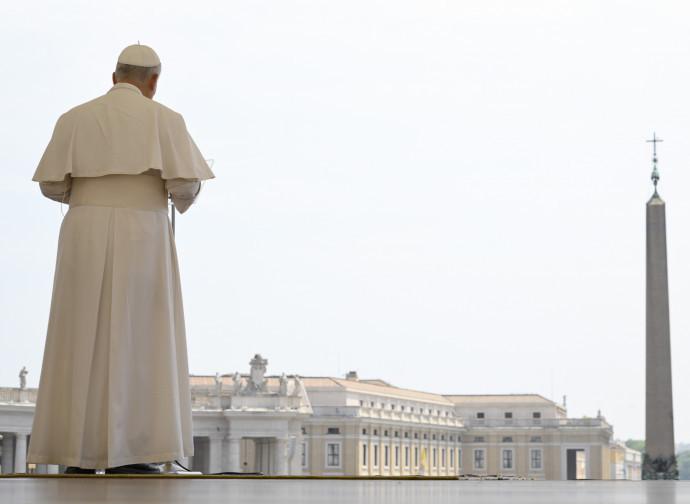Middle East, the Pope's warning against the nuclear threat
The escalation between Israel and Iran worries Pope Leo, who has issued an “appeal to responsibility and reason.” Clear and measured words, which denote a desire to trust the Secretariat of State more and not repeat past tensions with the Israeli government caused by Francis' statements.

The new military escalation in the Middle East worries Pope Leo XIV. On Saturday, at the end of the jubilee audience held in St. Peter's Basilica, the Pope made an appeal against the nuclear threat looming after the deterioration of the situation between Israel and Iran. The Pope's was an “appeal to responsibility and reason.”
Leo said that “the commitment to build a world that is safer and free from the nuclear threat must be pursued through respectful encounter and sincere dialogue, in order to build a lasting peace based on justice, fraternity, and the common good.” These are very prudent words that will certainly not provoke protests from either side, as has happened in the past with Francis' appeals.
“No one should ever threaten the existence of another,” said Leo XIV in a very important passage of his brief appeal. It is not difficult to understand who these words are addressed to: Iran, in fact, continues to deny Israel's right to exist. After the tensions with the Israeli government caused by Bergoglio's statements following the Israeli-Palestinian crisis after the terrorist attacks of October 7, 2023, it is clear that the American Prevost has chosen to change tack and probably also to trust more in the work of the Secretariat of State, which carefully measures its words.
“It is the duty of all countries,” the Pope concluded, “to support the cause of peace, initiating paths of reconciliation and promoting solutions that guarantee security and dignity for all.” This conclusion reaffirms the Holy See's traditional view that multilateralism is the best way to resolve geopolitical crises. Yesterday, during the Angelus prayer in St. Peter's Square, Leo XIV recalled the situation, limiting himself to renewing his prayers for the Middle East, as well as for Ukraine and the whole world.
Scholars and geopolitics enthusiasts are eagerly awaiting to find out what positions the new Pope will take on the conflicts in the Middle East. Before the election, Prevost showed caution by not making any public statements on the war in Gaza. In this way, he distanced himself from Francis' line, which, from his definition of “genocide” to the nativity scene with the keffiyeh, had annoyed Israel and at the same time provoked backlash in Jewish-Catholic dialogue.
The absence of statements prior to the election should not be interpreted as a form of disinterest because, on the contrary, the Augustinian from Chicago is well aware of the sensitivity of the issue and therefore the need to tread carefully. It is no coincidence that during his seminary years, the current Pope Leo XIV was a student of theologian John T. Pawlikowski, director of the program for Jewish-Catholic studies and former president of the International Council of Christians and Jews. In his teachings, Don Pawlikowski included the fight against anti-Semitism among the tasks of the Church's social doctrine, so dear to Pope Leo.
The reigning Pontiff realizes that not compromising relations with Israel will help the resumption of Jewish-Catholic dialogue. Therefore, beyond appeals for the humanitarian situation, it is reasonable to expect that there will be no ambiguous “incursions” on the geopolitical level. Both Tehran and Hamas had paid tribute to Leo, praising his positions as “courageous.”
Bergoglio's excessive ease in talks on such sensitive issues led last January to the news reported by the Iranian press agency that, in a meeting with the rector of the University of Religions, Abolhassan Navab, the late Pope had said that “the problem is with Netanyahu, who ignores human rights.” The style and content of Pope Francis' appeal for the Middle East on Saturday suggest that similar episodes are unlikely to be repeated. After twelve years of heart-stopping suspense, the Secretariat of State can breathe a sigh of relief.
